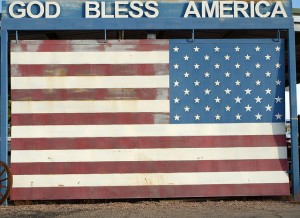 Over at The Atlantic, Peter Beinhart recounts the results of a new survey on religious observance in America. Unsurprisingly, he reports, Americans across the political spectrum tend to lie about how often they attend services.
Over at The Atlantic, Peter Beinhart recounts the results of a new survey on religious observance in America. Unsurprisingly, he reports, Americans across the political spectrum tend to lie about how often they attend services.
However, perhaps counterintuitively, American liberals are actually more likely to inflate their religious attendance than American conservatives:
Over the past few decades, liberals have—far more than conservatives—turned away from religious affiliation, though not necessarily belief in God. But while they may feel proud of their views on religion-informed issues like evolution and gay marriage, they’re not particularly proud of their lack of religious observance per se. Indeed, they’re aware that they’re violating a cherished social norm. Asking liberals to admit that they are disproportionately secular is like asking conservatives to admit that they are disproportionately white. It’s a truth they find embarrassing.
The point, says Beinhart, is that the liberal “war on religion” trumpeted by the likes of Rick Perry and Ann Coulter turns out to be imaginary. Far from scorning religious Americans, as conservatives charge, liberals seek to appear more religious than they are.
Beinhart suggests that secular liberals are right to be cautious about expressing their lack of faith. A 2006 study found that atheists are one of the least accepted of American society’s “marginalized” groups—and furthermore, tolerance for atheists has barely increased over the past several decades:
Americans are today more likely to say they would vote for a Muslim or a gay or lesbian for president than an atheist. In a recent Pew study, even nonreligious Americans said they wanted their presidential candidates to be believers—regardless of what faith they profess. Seven states still officially bar atheists from holding office.
Read the full piece at the Atlantic, and read more about the “social cost of atheism” here.












Uh…what? Liberals lying more than conservatives about how often they attend religious services because of the perceived social stigma of attending as infrequently as they do means that they aren’t warring against religion? And them playing up their religious affiliation when it’s appropriate means they don’t stigmatize religion? How does that work?
Conceptually, wished-for and actual attendance at religious services have almost nothing to do with the war on religion. The war on religion charge is that liberals’ understanding of religious observation is too narrow. Religious observation is much more than going to church on Sunday or synagogue on Sabbath or other liturgical forms of expression. It also includes living out your faith every day in every aspect of your life, including as a citizen of a democratic nation, as a public servant, as a private employee, as a shareholder in a multinational corporation, and as a democratic representative of the people. The charge is that liberals don’t realize that their opposition to religion having an active role in the public square amounts to a severe curtailing of religious observation, a gutting of a significant part of the non-liturgical content of religion, and thereby an effective war on religion when doggedly pursued.
So yes, maybe you’d expect Christians who attend church services regularly—or maybe people who wished they attended Christian services regularly—to understand that being a Christian isn’t just about attending Christian services. But, one, lots of people aren’t consistent about those kinds of things, and two, more theologically liberal strands of Christianity do not understand Christian faithfulness like that.
Someone who goes to church every Sunday can (knowingly or unknowingly) fight against the church Monday through Saturday. Many people on both sides of the political spectrum do exactly that.